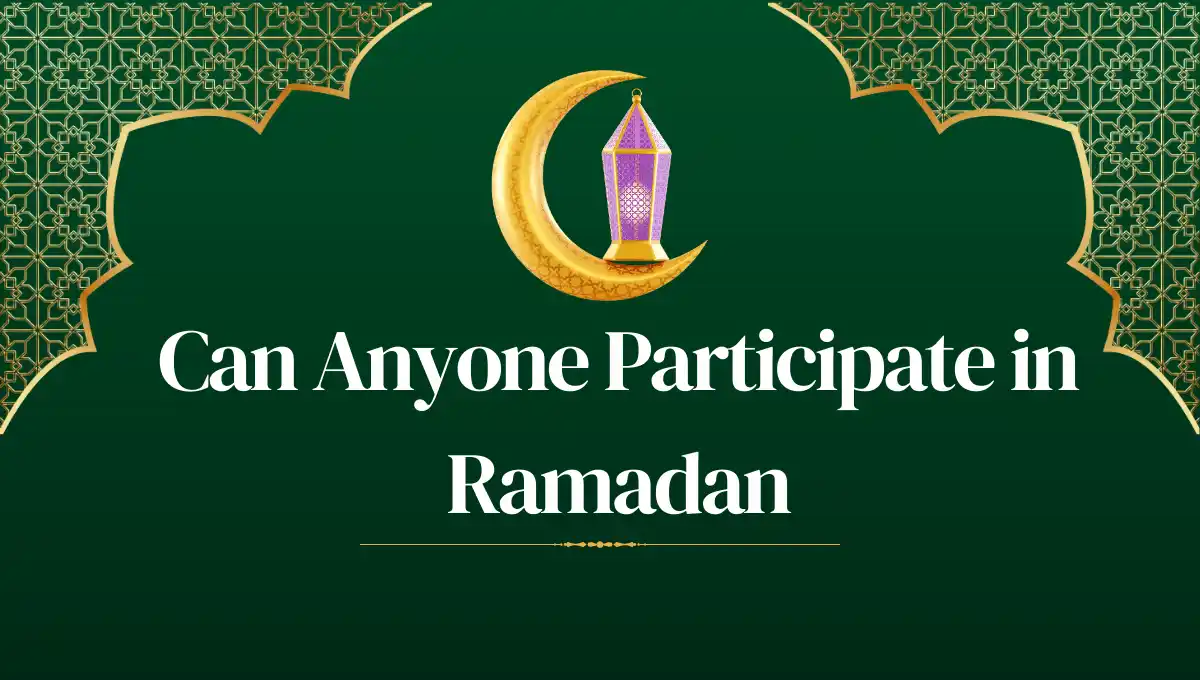Are you wondering whether anyone can participate in Ramadan? Ramadan, the holiest month in the Islamic calendar, is a time of fasting, prayer, reflection, and community for Muslims worldwide. As this sacred month approaches, many non-Muslims may wonder whether they can participate in Ramadan rituals and activities.
In this blog post, we’ll explore Ramadan’s inclusivity and whether individuals of other faiths or beliefs can participate in this spiritual journey.
Understanding Ramadan
Muslims observe Ramadan as a time of spiritual growth, self-discipline, and devotion to Allah (God). During this month, they fast from dawn until sunset, abstaining from food, drink, smoking, and other physical needs.
Fasting is not only a test of self-control but also an opportunity for Muslims to empathize with the less fortunate and deepen their connection with Allah through prayer, recitation of the Quran, and acts of charity.
Inclusivity in Ramadan
While Ramadan is primarily a religious observance for Muslims, its message of compassion, empathy, and community extends beyond religious boundaries. Islam encourages inclusivity and welcomes individuals of all faiths and backgrounds to join in acts of kindness, charity, and solidarity during Ramadan.
Non-Muslims can participate in various aspects of Ramadan, such as attending community iftars (breaking the fast), volunteering at local mosques or charities, and engaging in interfaith dialogue and understanding.
Participation Opportunities
There are numerous ways for non-Muslims to participate in Ramadan and contribute to the spirit of the month. Some suggestions include:
- Attend Community Iftars: Many mosques and Islamic centers host iftar dinners open to the public, where individuals of all faiths can join Muslims in breaking the fast and sharing a meal. These gatherings foster unity, friendship, and cultural exchange.
- Volunteer for Charity: Get involved in community service projects or volunteer opportunities organized by Muslim charities during Ramadan. Whether distributing food to those in need, serving meals at homeless shelters, or participating in fundraising efforts, there are plenty of ways to make a positive impact.
- Learn and Educate: Take the opportunity to learn more about Ramadan and Islam by attending educational events, lectures, or workshops organized by local mosques or community organizations. Likewise, share your cultural or religious traditions with Muslim friends and neighbors to promote mutual understanding and respect.
- Practice Empathy and Solidarity: Regardless of religious affiliation, everyone can practice empathy, compassion, and solidarity with those observing Ramadan. Offer words of encouragement, support, and understanding to Muslim friends, colleagues, and neighbors during this sacred month.
Conclusion
In conclusion, while Ramadan is a profoundly spiritual and religious observance for Muslims, its message of unity, compassion, and inclusivity transcends religious boundaries. Non-Muslims can actively participate in Ramadan through acts of kindness, charity, and solidarity, enriching their lives and fostering greater understanding and harmony within their communities.
By embracing the values of Ramadan, individuals of all faiths and beliefs can come together to create a world of compassion, empathy, and peace.
